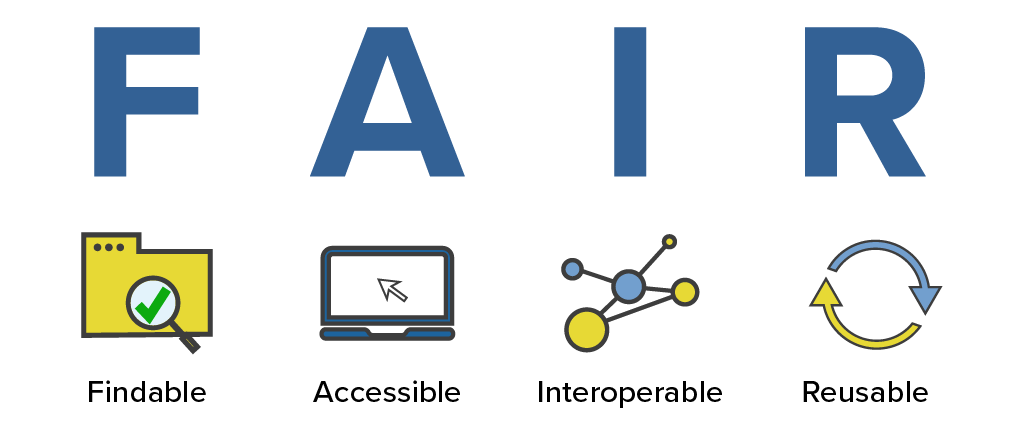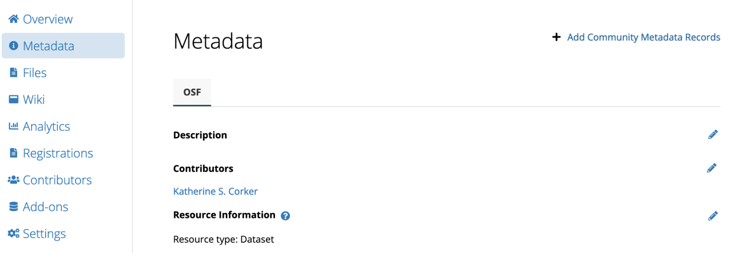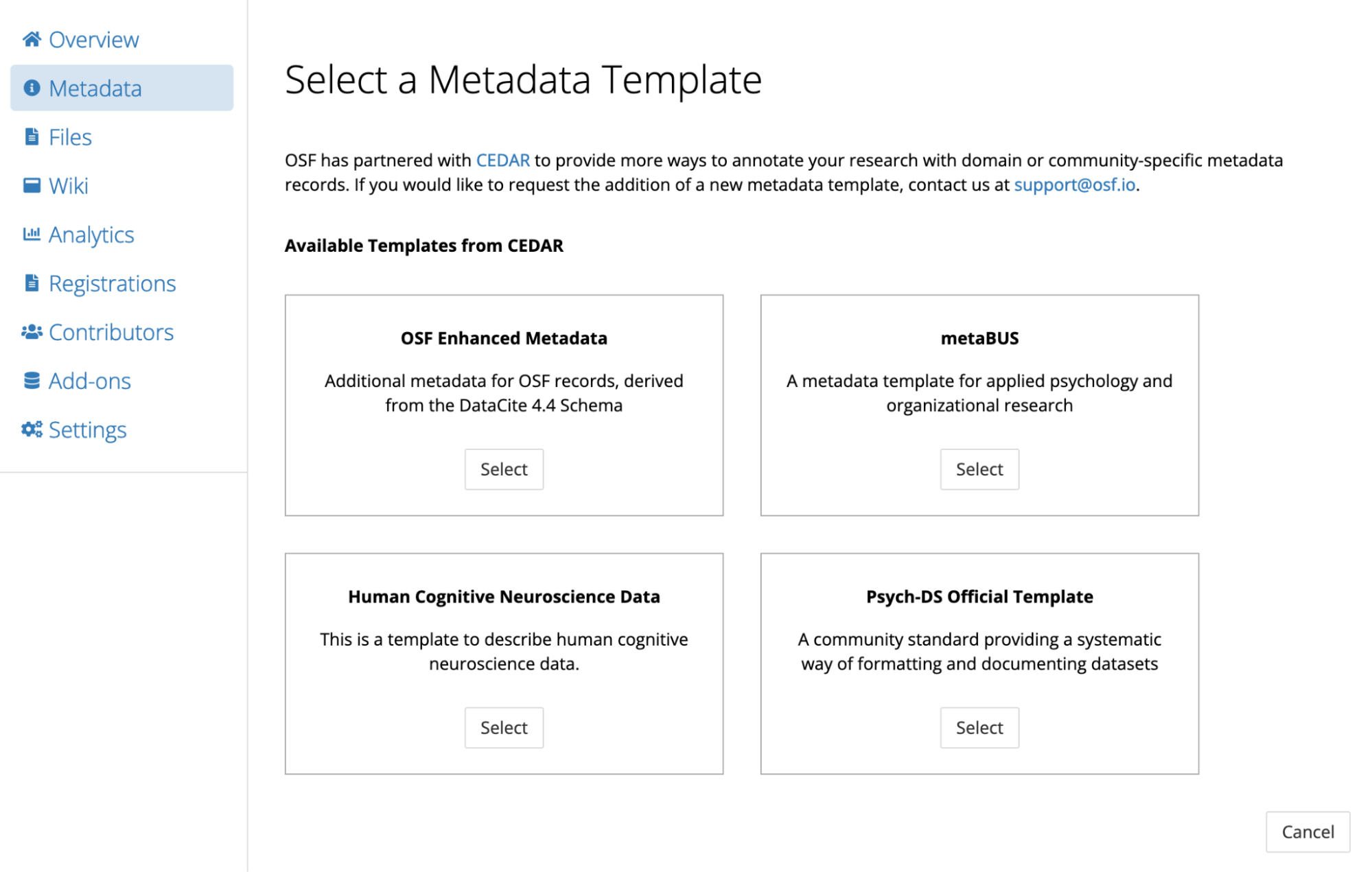
A new OSF feature makes it possible and easy for researchers to make their research FAIR by annotating their research artifacts with specialized metadata. The feature is enabled by an integration with Stanford’s CEDAR embeddable editor. Four templates are initially available, and readers are invited to nominate more.
Today we are announcing the launch of a new feature that will allow research communities to describe research objects in OSF with specialized metadata templates. The launch represents an exciting leap forward for researchers who seek to make their research FAIR (Findable, Accessible, Interoperable, and Reproducible). Read on to understand more about the new feature and to learn how to tell us about your community’s metadata needs, so that we can expand the available templates in ways that are most useful.
Researchers want the research that they create - their projects, data, analysis code, materials, and other files - to be available and of use to others in their research communities. But in order for these artifacts to be useful, they need to be shared in a FAIR way. FAIR means that others can Find and Access those research objects, because they are stored in a standard (Interoperable and machine-readable) way, rendering them Reusable by the community.
Metadata, or data describing research, is the magic ingredient that enables projects, data, analysis code, and research materials to be made FAIR. The Open Science Framework (OSF) has already implemented strong metadata practices and improved the core metadata used to describe things stored on OSF. However, a limitation of the current metadata framework on OSF is that, by virtue of our goal to serve as many research areas as possible, it is very general. To really describe research objects in detail, communities need specialized metadata schemas.
Today, we are announcing a new feature that will allow research communities to be able to annotate their OSF objects with specialized metadata templates. The new ability is made possible through an integration with CEDAR, a tool developed by engineers at Stanford University. CEDAR makes it possible for community creators of specialized metadata templates to create machine-readable and FAIR schemas.
The new feature on OSF makes use of a tool called the CEDAR Embeddable Editor. The embeddable editor displays CEDAR schemas within the OSF. This means that researchers who want to annotate their data need only to select the specialized template on OSF and fill out the additional metadata form. On public projects, the contents of the extra form are displayed alongside the OSF standard metadata. It is also possible to download the additional metadata as a JSON file.

"The integration with CEDAR on OSF will make it possible and easy for researchers to bring robust, FAIR metadata to their research-sharing workflow and increase the discovery and impact," said Nici Pfeiffer, Chief Product Officer at COS.

We are initially releasing five specialized metadata templates that OSF users can select. One form is for describing projects in educational and human development research, based on the work at the LDbase repository. A second form is for cognitive neuroscience researchers collecting data from human participants; you can read more about the Human Cognitive Neuroscience form here. A third form is for social science researchers seeking to describe their dataset in a standard compliant way. Learn more about the Psych-DS standard here (and note - the potential uses of the Psych-DS standard likely extend beyond psychology). A fourth form allows researchers to describe a study according to the metabus community standard. Finally, we have also included an OSF Enhanced Metadata form, which allows users to share more of the Datacite metadata fields that are not already captured by default OSF metadata.
We hope that these initial offerings provide a preview of future possible uses of the feature, and we look forward to growing the available selection of templates going forward. Indeed, we have a few other schemas in the pipeline for implementation, but OSF is actively seeking to expand the offerings to represent the diversity of research that is available on the OSF. Want to tell us about your community’s metadata needs, or suggest a particular metadata schema for addition to OSF? Tell us more in this form. Want to learn more about the new feature and try it out yourself? Check out our detailed help guide on the topic.

6218 Georgia Avenue NW, Suite #1, Unit 3189
Washington, DC 20011
Email: contact@cos.io

Unless otherwise noted, this site is licensed under a Creative Commons Attribution 4.0 International (CC BY 4.0) License.
Responsible stewards of your support
COS has earned top recognition from Charity Navigator and Candid (formerly GuideStar) for our financial transparency and accountability to our mission. COS and the OSF were also awarded SOC2 accreditation in 2023 after an independent assessment of our security and procedures by the American Institute of CPAs (AICPA).
We invite all of our sponsors, partners, and members of the community to learn more about how our organization operates, our impact, our financial performance, and our nonprofit status.